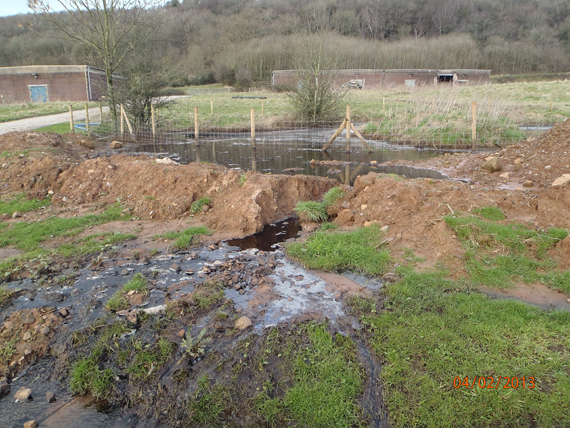Wormtech directors sentenced to jail

Image courtesy of Natural Resources Wales
Three directors of former waste management company Wormtech have been handed prison sentences for breaching the firm’s environmental permit and endangering human health.
At a sentencing hearing at Newport Crown Court yesterday (13 February), Wormtech Director Jacqueline Powell was sentenced to 12 months imprisonment (suspended for 12 months), ordered to carry out 250 hours of unpaid work, and disqualified from being a director for five years.
Jonathan Westwood was handed 32 weeks imprisonment (suspended for 12 months), ordered to carry out 150 hours unpaid work, and disqualified from being a director for three years, while Robert Baynton was sentenced to 16 weeks in prison (suspended for 12 months).
No additional order was made for Baynton due to ill health. However, he has been disqualified from being a director for two years.
The sentencing follows on from the January 2014 hearing in which Cardiff Crown Court found Powell guilty of breaching the conditions of the company’s environmental permit and storing waste in a manner ‘likely to cause harm to human health or pollution to the environment’.
Prior to that, on the 18 December 2013, Westwood pleaded guilty to the same charges, and Baynton to the offences of breaching the conditions of the environmental permit.
Case background
The case was first brought to court last year after officers from Environment Agency Wales (EAW, now under the remit of Natural Resources Wales) visited Wormtech’s Caerwent composting site in early 2012 and found evidence of compost leachate leaking from storage areas at the site onto surrounding land.
As a result of this, in July 2012, EAW served a legal notice on the company requiring them to comply with the conditions set in their environmental permit and ensure all waste materials were contained within the site’s infrastructure.
However, further visits found that leachate continued to seep through the walls of buildings and into the ground. As such, following an assessment of the risk of pollution from the operation, EAW served a second notice on the company to suspend its permit.
This led to the company closing in October 2012 with approximately 20,000 tonnes of composting waste remaining on-site.
Clean-up could cost more than £1.6 million
Due to concerns that leachate could continue to escape from the site and enter nearby watercourses, the EA stepped in and removed approximately 5,000 tonnes of what it considered to be ‘the most hazardous waste’.
Natural Resources Wales has said it is continuing to look at how the remainder of the waste still present at the site will be removed, as it could cost in excess of £1.6 million to dispose of.
A financial investigation is being conducted with the assistance of Gwent Police, and it is anticipated that these proceedings will be determined ‘later in the year’.
Site thought to be ‘worst performing waste facility in England and Wales’
Speaking of the case, Jon Goldsworthy, from Natural Resources Wales said: “The actions taken by the company and its directors in this case could have caused serious pollution to the nearby environment, as well as placing the health of local people at risk.
“In 2012, the site was thought to be the worst performing waste facility in England and Wales in terms of its failure to comply with the conditions in its permit.
“In addition to this, the poor condition in which the site was left meant that that the taxpayer had to pick up the bill to remove waste from the site – money that could have been directed to other front-line services that people rely on.
“We will always try to work with companies to make sure they comply with the conditions in their permit, but in cases like this, we have to step in and take legal action to ensure the safety of the local environment and community.”
Read more about the Wormtech case.






